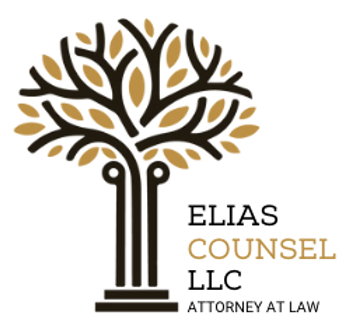Life Estate Deeds in New Jersey
An Estate Planning Shortcut with Long-Term Benefits
Life estate deeds are a smart, cost-effective way to plan for the future-especially when you want to leave real property to someone you trust without going through probate. At Elias Counsel LLC, we help Monroe Township families explore whether this tool makes sense for their goals and explain the pros and cons in plain English.
We serve Middlesex County and nearby Central Jersey communities, including Jamesburg, East Brunswick, Old Bridge, and beyond. If you're wondering how to pass your home on to a loved one without unnecessary paperwork or delay, let's talk about whether a life estate deed could help.
What to Expect When You Create a Life Estate Deed with Us
Here's how we help you take the guesswork out of this powerful estate planning tool:
Clear Explanation of What It Does (and Doesn't Do)
We walk you through the mechanics of a life estate deed-how it lets you keep control during your lifetime while automatically transferring the property after death. We'll also talk through limitations, tax considerations, and when it may not be the best fit.
Careful Drafting & Filing
We handle every step of the process-from preparing the deed to recording it properly with the Middlesex County Clerk's Office. We'll confirm that the legal description is accurate and make sure no details are overlooked.
Coordination with Your Overall Estate Plan
A life estate deed isn't a standalone fix-it should work in harmony with your full estate plan. We'll look at how it interacts with your will, trust (if any), and any Medicaid or tax considerations. The goal: to make everything fit together cleanly.
Straightforward, Respectful Guidance
As with everything we do, we make the process approachable. Attorney Adam Elias takes time to explain how things work, what your options are, and how to avoid surprises down the road.
What Is a Life Estate Deed?
A life estate deed allows a property owner (the "life tenant") to retain control and use of their home during their lifetime, while automatically transferring ownership to someone else (the "remainderman") upon death-no probate required.
It's commonly used by parents who want to leave their home to children, or by individuals who want to simplify their estate while retaining residency rights.
In New Jersey, life estate deeds are legal and effective-but they must be carefully drafted to avoid problems later.

Why Use a Life Estate Deed in Estate Planning?
Life estate deeds can offer several benefits, including:
Avoiding probate
The home passes directly to your chosen heir without court involvement
Retaining control
You continue to live in and maintain the property during your lifetime
Medicaid planning
In some cases, it may help with Medicaid eligibility (though rules are complex)
They're not ideal for everyone-especially if you want flexibility to sell or refinance the home later. We'll help you weigh all the pros and cons based on your unique situation.
When a Life Estate Deed Might Be a Good Idea
We often recommend exploring this option when:
You want to leave your home to a specific person
You don't want them to deal with probate
You don't plan to sell or refinance the property in the future
You want to reduce future legal costs for your heirs
Not sure if that fits your needs? That's where we come in. We'll explain other tools like trusts or traditional wills that may offer better flexibility depending on your goals.
FAQs About Life Estate Deeds in NJ
Can I sell my home after creating a life estate deed?
Not without the consent of the remainderman. A life estate deed limits your ability to sell or mortgage the home on your own-so it's not ideal if you think you may want to downsize later.
Is a life estate deed better than a trust?
Learn more about TrustsIt depends. Life estate deeds are simpler and less expensive, but trusts offer more control, especially if you want to set conditions or protect against creditor claims.
Does this affect my property taxes or insurance?
Usually no-but you'll still be responsible for taxes and upkeep. You'll want to notify your insurance provider about the new deed, and we can help with that.
Can a life estate deed be changed
Once it's recorded, it's typically irrevocable without agreement from the remainderman. That's why it's critical to make this decision carefully
Will this protect the home from Medicaid estate recovery?
Sometimes-but not always. Medicaid rules are complex and change frequently. We'll walk you through how a life estate deed might factor into a broader Medicaid plan.
